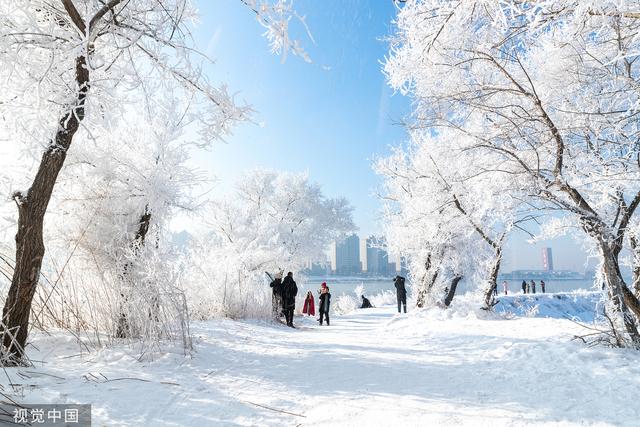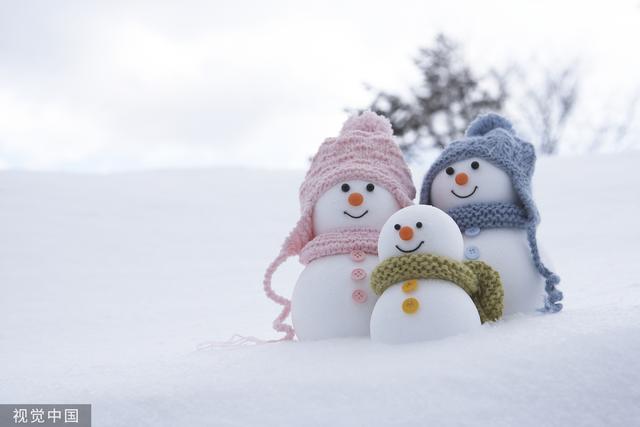January 20th was a severe cold. The Great Cold is the last solar term among the 24 solar terms, and it is also the last solar term in winter.
Winter goes and spring comes. As soon as the severe cold is over, the four seasons begin a new cycle. During the period from the Great Cold to beginning of spring, there were many important traditional folk customs in China, such as removing old cloth and making new ones, making preserved meat, offering sacrifices to stoves and ending sumptuous food.
"The Great Cold is the last of the 24 solar terms. In fact, it will take half a month to get to beginning of spring, but the people think that the Great Cold is the symbol of the end of that year, and the new year begins in beginning of spring. During this time, there is no god to control the people. Therefore, people call this period from the Great Cold to beginning of spring’ Luannian Festival’. This period of time can break ground, make decoration engineering construction … all is forgiven. This is actually a liberation for everyone’s usual behavioral taboos. "
Tian Zhaoyuan, a professor at East China Normal University, believes that the "Lunar New Year’s Day" during the Great Cold is really for the people to seek short-term freedom and liberation with different narratives, and at the same time, it also finds reasons for engaging in family decoration construction in the leisure time of agricultural production.

Data Map of vision china on the Songhua River in Jilin ProvinceThere is no slight cold in the great cold.Great cold and slight cold are born "a couple". "A General Examination of Time" says: "The great cold is the middle one, and the upper form is the slight cold, so it is called great … the extreme of cold, so it is called great cold." "twenty-four solar term" also recorded: "In mid-December, before the solution (slight cold)."
Great cold and slight cold are the names of solar terms that show the change of temperature. "Although the name of great cold seems to be colder than slight cold, in fact, at this time, the yang in nature is further rising, which is close to spring, so the temperature of great cold solar terms is often higher than that of small cold solar terms, and slight cold is even colder." Bi xuling, director of the folklore research office of the institute of literature of Shanghai academy of social sciences, said.
The reason why the 24 solar terms set up a great cold after the slight cold, Bi Xuling thinks, is related to the China people’s traditional idea of "never coming too late, going round and round". After the great cold, they returned to the beginning of spring solar terms, just completing the cycle of one year.
From the agricultural point of view, during the great cold solar term, there was still little farm work all over the country. People in northern areas are mostly busy accumulating fertilizer and compost to prepare for spring, or strengthening the cold and antifreeze of livestock. The field management of wheat and other crops should be strengthened in the southern region. In Lingnan area, the severe cold is an important opportunity to focus on eliminating voles, because the crops have been harvested at this time, and the vole nests that are not usually seen are exposed in the bare fields.

There are many folk festivals during the solar terms.The whole period from the Great Cold to beginning of spring is at the end of the year and the beginning of the year, and there are many important traditional folk customs and festivals, such as offering sacrifices to stoves, La Worship, tail sumptuous food and so on.
"The saying’ a toothache’ is related to the tail sumptuous food in the Great Cold Solar Term." Bi Xuling introduced that the so-called "tail sumptuous food" came from the unique custom of "making teeth" in Fujian and Taiwan.
On the second and sixteenth day of each month, merchants hold a ceremony to worship the land god. The first time they make their teeth every year is on the second day of February, which is called "head teeth", and the last time is on December 16th, which is called "tail teeth". On the evening after the sacrifice, the merchants will entertain the buddies, old customers, etc. with the chicken, duck and fish sacrificed to the gods.
"Because the twenty-four solar terms are solar calendars and the lunar calendar is a combination of yin and yang, not every year’s tail sumptuous food is in the great cold solar terms. This year’s tail sumptuous food is not in the great cold solar terms, but it is on the first day of the first month."
There is also a very interesting custom called "stepping on the old age" in the Great Cold. In order to ward off evil spirits and welcome auspicious events, in the old days, people often bought sesame stalks and sprinkled them on the ground, meaning that "sesame blossoms are rising day by day" and let children crush them. It is homophonic to "step on the old age", which means peace every year and symbolizes that it is getting better every year. Sometimes it is not easy to buy sesame straw, but also use peanut shells and melon seeds instead, chanting "Peace through the years" while stepping on it.

As the new year approaches, we will welcome the new year.This year’s severe cold coincides with the 29th of the twelfth lunar month, and the next day is New Year’s Eve, and the first day of the first month is also in the severe cold solar terms. "The streets are decorated with colorful household dusts, and all the peaches are changed into couplets." In order to welcome the new year, every household is busy cleaning and decorating the door, to purify the space and beautify the environment, and to purify the soul and welcome the auspicious Naji. Spring Festival couplets, blessings, window grilles and other festive decorations related to the New Year Festival are also the "highlights" of home decoration recently.
There are many records about the decoration of the Spring Festival in many documents, such as Wu Zimu’s "Dream Liang Lu" in the Southern Song Dynasty: "(Spring Festival) scholars, regardless of their families, sweep their doorways, remove dust and filth, clean their doormen, change their doormen, hang Zhong Kui, nail peach symbols, paste spring cards and worship their ancestors." Zhou Bida’s Miscellaneous Notes on Yutang in the Southern Song Dynasty said: "In addition to the day, it is more important to paste the spring, the column couplet and the threshold, and to paste the words" Fu, Lu, Shou, Yi Cai and Er Xi "on the porch of the Tang Dynasty." In short, people are full of hope for a happy life to decorate their homes, look brand-new, welcome auspicious Naji and pray for the fate of the new year.
"In China, the simple belief of ordinary people is’ animism’, and there are’ gods’ three feet from the ground. Mountains and rivers, the sun, the moon and the stars, animals and plants, harmonious coexistence and harmony between man and nature are the ideal living conditions." Fang Yun, a researcher at the Center for the Inheritance and Application of Intangible Cultural Heritage of East China Normal University, believes that the Spring Festival is a festival with double meanings of "purification ceremony" and "passing ceremony", which can make us relate to natural energy and the change of seasons. Spring Festival decoration not only enriches the festive atmosphere, beautifies the home, but also enriches the spiritual and cultural life.
(This article is from The Paper, please download the "The Paper" APP for more original information)
Reporting/feedback
关于作者